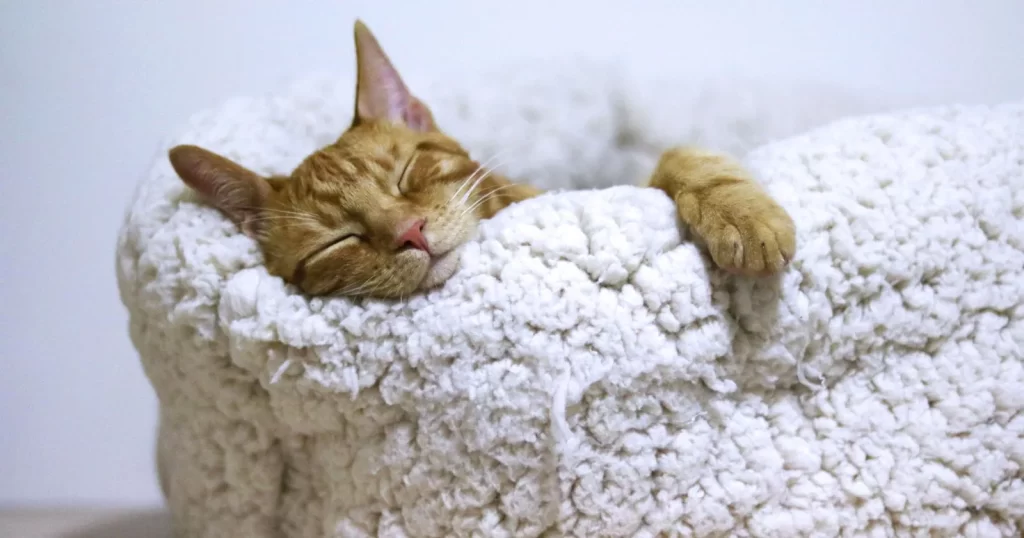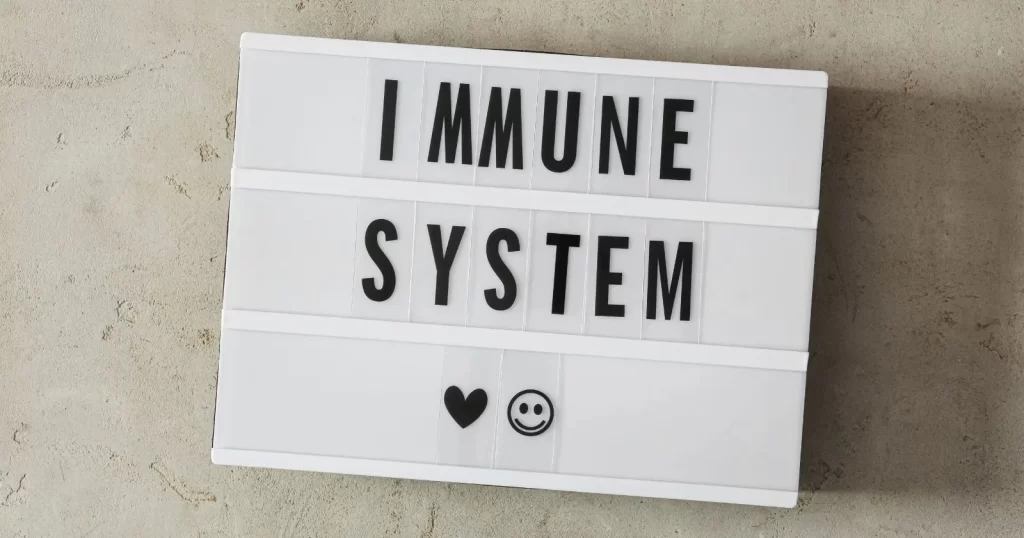Sleep, oh wonderous sleep – where art thou!
As someone who works before the 9 and way beyond the 5, good sleep is tantamount to my productivity. It doesn’t end there. High-quality sleep is a non-negotiable, not just for me, but for performers of all sorts – the corporate workforce, the business owners, the artists, the athletically gifted, and more. But let me tell you a not-so-hushed secret – good sleep, the kind that is scientifically recommended – seems like a utopian concept today.
Now, why would I say that?
I say this, simply because it’s true.
In our fast-paced, digital-first world, sleep is often relegated to the back burner, dismissed as a lazy activity. But honestly, it’s far from it! Sleep is an essential cornerstone of a healthy life, especially when it comes to the well-being of our immune system. We’ll embark on a journey to discover how lack of sleep affects our immune system, and why we must prioritize quality slumber for a vibrant, resilient life. In a nutshell, let’s find out why sleep is the unsung hero of immune health!
The Beauty of Quality Sleep
The remarkable benefits of quality sleep in our lives ought to be celebrated. Just think – something as natural as resting, specifically resting well, can have far-reaching positive effects that can impact many aspects of our lives. Isn’t that worth celebrating?
When we prioritize quality sleep, we gift our bodies a chance to heal, repair, and rejuvenate. It’s when we rest the right way that our brains sort and consolidate memories, making us sharper and more focused during the day. Moreover, sleep boosts creativity, improves mood, and lowers stress levels – all key ingredients in the recipe for a thriving life!

Resting in a Sleep-Deprived Generation
In this leg of the 21st century, sleep often takes a backseat to our jam-packed schedules, unending ambitions and ever-present digital devices. We glorify the busy, often wearing our sleep deprivation like a badge of honour, without fully grasping the damage we inflict upon ourselves. We must shift this narrative and recognize that prioritizing sleep is a vital component of healthy living. After all, healthy living starts with valuing the simple, yet powerful act of getting enough rest.
The Importance of Sleep for Mental Health
Before we delve into the fascinating world of the immune system and immune health, let’s explore how sleep directly impacts our mental health. Sufficient sleep nurtures emotional resilience, improves decision-making, and bolsters our ability to cope with life’s challenges. When we’re well-rested, we’re more likely to embrace positivity and gratitude, fostering healthier relationships and a stronger sense of self.
Why Sleep is Not a Lazy Activity
In a society that glorifies productivity and constant hustle, sleep can feel like a hindrance to our ambitions. But in reality, sleep is the ultimate life hack for peak performance. It certainly is a great form of self-care, and remember – self-care is not being selfish.
By viewing sleep as a lazy activity, we undermine the incredible benefits it offers. Embracing sufficient rest allows us to become more effective, creative, and productive in our pursuits. Remember, sleep is anything but lazy, and we need to free ourselves from the conditioning that rest ought to be earned.
The Immune System: Our Personal Bodyguard
Let’s turn our attention to the star of the show – our immune system. This remarkable defence mechanism safeguards us against an army of invaders, from bacteria to viruses, ensuring we stay healthy and vibrant. But did you know that the immune system’s vigilance is highly dependent on the quantity and quality of our sleep?

How Does Lack of Sleep Affect Health and the Immune System?
1. The Lack of Sleep Makes us Vulnerable
When we don’t get enough rest, our immune system takes a hit, compromising its ability to defend us. A well-rested immune system produces cytokines – tiny proteins that combat infections and inflammation. Sleep deprivation disrupts cytokine production, leaving us more vulnerable to illnesses, such as the common cold or flu.
How else does sleep deprivation impact immunity? Sleep plays a pivotal role in antibody production, the superhero molecules that neutralize harmful pathogens. Insufficient sleep means fewer antibodies, reducing our capacity to fight off infections effectively.
2. The Impact of Sleep on Natural Killer Cells
Another fascinating aspect of our immune system is the presence of natural killer, or NK, cells. These specialized white blood cells are vital for identifying and eliminating cancerous cells and virus-infected cells. But what happens to your immune system, and these killer cells, when you don’t get enough sleep? Studies have shown that sleep deprivation diminishes the activity of NK cells, severely blunting their ability to protect us.
3. Inflammation: The Unwanted Guest
Another way lack of sleep weakens our immune system is through inflammation. Chronic sleep deprivation triggers an increase in inflammation-promoting chemicals. Inflammation, while crucial for healing, is problematic when prolonged beyond its usefulness and requirement. It can contribute to various health issues, including cardiovascular disease, diabetes, and autoimmune disorders.
4. Quality Sleep and Strong Immunity are Best Friends
The good news is that we have the power to boost our immune system simply by making sleep a priority. Prioritizing seven to nine hours of quality sleep each night can work wonders for our body’s defence mechanisms. Not only will it enhance our immune system, but it will also improve our overall well-being and cognitive function.
Tips to Sleep Well and Embrace Healthy Living
The benefits of quality sleep are endless! In fact, to clock in more zzzs you can follow a few simple daytime habits as well. But if you struggle with clocking in those precious eight hours of blissful rest, here are five tips to help you. When implemented with discipline, these tips will help you, sleep seeker, transform your tossing-and-turning into a tranquil time of rest and renewal.
1. Say YES to a Consistent Sleep Schedule
Imagine if your favourite song suddenly changed its rhythm every few seconds – it would be quite a disorienting experience. Similarly, our bodies crave consistency when it comes to sleep. Establish a regular sleep schedule by going to bed and waking up at the same time every day, with no exceptions. Yes, this includes weekends too! A consistent sleep schedule will help regulate your internal clock, making it easier to fall asleep and wake up refreshed.
2. Embrace a Serene Sleep Environment
Creating a sleep-conducive environment can work wonders for your restful slumber. Keep your bedroom cool, dark, and quiet, like a cosy cave. Invest in blackout curtains to banish intrusive light, and consider using earplugs to drown out disruptive or distracting city sounds. If needed, sprinkle some lavender essential oil or spray some lavender mist on your pillow for a soothing aroma that lulls you into dreamland.
3. Unplug and Unwind Before Bed
In this digital age, it’s tempting to doom-scroll through social media or binge-watch our favourite shows until the wee hours. But be warned – the blue light emitted by screens interferes with the production of melatonin, the sleep hormone. Switch off your devices at least an hour before bedtime, and engage in calming activities instead. Read a printed book, meditate, or practice gentle stretches to ease tension in your body. A note of meditation: it has way more benefits beyond just relaxing- and all you have to do is inhale and exhale.
4. Mind Your Meals and Beverages
You are what you eat – even in the realm of sleep! Be mindful of your eating habits, especially in the evening. Avoid heavy, spicy, or greasy meals close to bedtime, as they may lead to indigestion and discomfort. Limit caffeine and alcohol consumption, as they can disrupt your sleep cycle. Choose a light, soothing snack if you’re hungry before bed, such as a banana or a warm cup of chamomile tea.
5. Cultivate a Relaxing Bedtime Ritual
Bid farewell to the chaos of the hours with a delightful bedtime ritual that gently tells your body that it’s time to close the curtains for the day. Indulge in a warm bath, participate in breathing exercises, or journal your thoughts and feelings. Embrace the comfort of soft, breathable bedding that envelops you in a gentle hug, inviting you to a night of peaceful slumber.
To be Direct: Let’s Put Sleep on the Pedestal it Deserves
This seemingly simple act of slumber holds the key to a vibrant life and a robust immune system. By valuing our sleep, we show love and care to our bodies, allowing them to function optimally and protect us from harm.
So, let’s celebrate the marvel of sleep, embrace its healing embrace, and watch our immune system thrive as we cherish the gift of restful slumber. Here’s to a happier, healthier, happier, and well-rested you!
Sleep well and stay healthy!



1 Comment